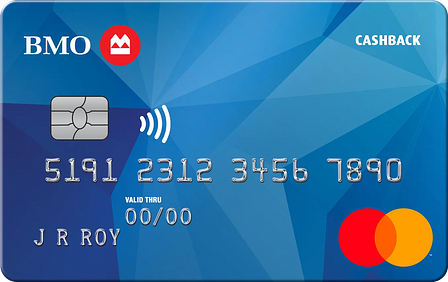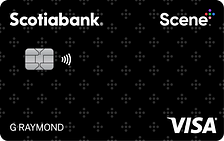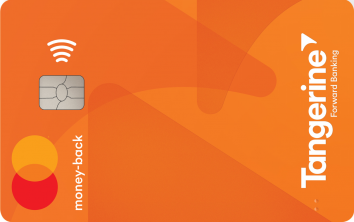
If you are not redirected within 30 seconds, please click here to continue.
Samedi: 10h – 16h HAE

If you are not redirected within 30 seconds, please click here to continue.
If you are not redirected within 30 seconds, please click here to continue.
Best Credit Card for Students in Canada for 2020

For the average student, money is typically pretty tight. Tuition is expensive, not to mention the cost of student housing, textbooks and other program requirements like laptops or those handheld clicker devices.
Fortunately, many grocery stores provide students with a discount day, generally around 10% off during a specific day of the week. For those looking to score a little more cash, a rewards credit card may just do the trick. Not only can students start to build their credit history and credit score—which they’ll need shortly after graduation—but they can also save money and put cash back in their wallet.
As a student, you are likely looking for a no-fee card with few eligibility requirements. Student cards may ask for proof of enrollment in a post-secondary institution but usually don’t require a credit check and have high approval rates.
We compared the leading student credit cards using our Best of Finance methodology and ranked the cards that provided the highest first-year value.
These are the best credit cards for students in 2020.
| Our top pick | ||
|---|---|---|
| Credit card | Great features | Annual fee |
| 1. BMO®* CashBack Mastercard®* |
| $0 |
| Runners-up | ||
| Credit card | Great features | Annual fee |
| 2. SCENE®* VISA* Card |
| $0 |
| 3. Tangerine Money-Back Credit Card |
| $0 |
1. BMO®* CashBack Mastercard®*

The BMO® CashBack® Mastercard®* lets students earn cash back on their necessities, including groceries, recurring bill payments and everything else they buy like textbooks and pub grub. For a limited time, students can earn 5% cash back for the first three months. Conditions apply.
According to our Best of Finance methodology, the average Canadian will earn $364 back in the first year.
Credit score requirement for approval:
Good: You’ve had a credit card or loan for at least six years. You’ve had good credit for the last seven years (no bankruptcies or defaults on credit as a result of failing to pay debts back to creditors). You haven’t opened a new credit card account, loan, or line of credit in the last nine months. You’ve made the minimum payments on any existing credit cards for the past three months.
Annual fee:
$0
Limited time offer/bonus:
- New cardmembers can get 5% cash back for the first three months. You will earn the regular 3% cash back rate on grocery purchases, up to $500 per billing cycle, with a bonus rate of an additional 2% back on your first $500 spend over the first three months. You will also receive the regular earn rate of 1% cash back on recurring bill payments up to $500 per billing cycle, with a bonus rate of an additional 4% cash back on your first $500 spend over the first three months. For all other purchases, you will receive the regular earn rate of 0.5% cash back, with a bonus of an additional 4.5% back on your first $1,500 spend over the first three months.
Offer expiry date: October 31, 2021
Rewards:
- Get 3% cash back on grocery purchases, up to $500 in total purchases per month.
- Get 1% cash back on recurring bill payments, up to $500 spent per billing cycle.
- Get 0.5% unlimited cash back on all other purchases.
Earning potential:
How does this card stack up to other rewards credit cards? We crunched the numbers using our Best of Finance methodology to see how much an average Canadian could earn over a 12-month period.
Rewards earned over a 12-month period = $364
Annual fee = $0
Total earned over the first year (rewards minus annual fee) = $364
You can redeem your points for:
- Deposit your cash back into your BMO chequing or savings account.
- Deposit your cash back into your BMO InvestorLine account.
- Apply your cash back as a statement credit.
Insurance:
- Purchase protection
- Extended warranty
- Zero Liability
Other perks:
- Get up to 25% off car rentals at participating National Car Rental and Alamo Rent A Car locations.
- Receive 15% off admission to Cirque du Soleil shows touring Canada, and 20% resident shows in Las Vegas.
Compare the best credit cards on RATESDOTCA
Find the best credit card for your lifestyle today!
2. SCENE®* VISA* Card

Students can earn free movies with the SCENE®* Visa* Card. Receive 2,500 bonus SCENE points when you make $500 in everyday purchases within the first three months. Regularly earn one SCENE point per dollar spent on everyday purchases and work your way to free movie tickets or movie rentals. This card gives students the chance to take a study break and relax with friends in between hitting the books.
According to our Best of Finance methodology, the average Canadian will have $337 in SCENE points within the first year.
Credit score requirement for approval:
Good: You’ve had a credit card or loan for at least six years. You’ve had good credit for the last seven years (no bankruptcies or defaults on credit as a result of failing to pay debts back to creditors). You haven’t opened a new credit card account, loan, or line of credit in the last nine months. You’ve made the minimum payments on any existing credit cards for the past three months.
Annual fee:
$0
Limited time offer/bonus:
- New cardmembers can earn 2,500 bonus SCENE points when they spend at least $500 within the first three months.
Offer expiry date: February 28, 2021
Rewards:
- Earn one SCENE point per dollar spent on everyday purchases.
- Earn five SCENE points per dollar spent at Cineplex theatres and cineplex.com.
*A maximum of 300 points can be earned per transaction, up to a daily maximum of 600 points. When redeeming SCENE points at the theatre, additional SCENE points are earned, up to a maximum of one adult ticket and two child tickets per transaction and two transactions per day.
Earning potential:
How does this card stack up to other rewards credit cards? We crunched the numbers using our Best of Finance methodology to see how much an average Canadian could earn over a 12-month period.
Rewards earned over a 12-month period = 33,700 SCENE points
Monetary value= $337
Annual fee = $0
Total earned over the first year (rewards minus annual fee) = $337
You can redeem your points for:
- Use 1,000 points to get $10 off at participating restaurants.
- Redeem 1,250 points for a General Admission or 3D movie ticket in a regular auditorium.
- Redeem 2,000 points for a free Enhanced movie ticket, including UltraAVX, IMAX, DBOX, and the 3D versions of these experiences.
- Redeem 2,500 points for a VIP Cinemas ticket.
Insurance:
- Feel reassured (optional protection)
Other perks:
- Get an additional supplementary card for free.
- Save on car rentals at participating AVIS and Budget locations across the U.S. and Canada.
3. Tangerine Money-Back Credit Card

Apply for the Tangerine Money-Back Credit Card and earn 2% cash back in up to three categories of your choice. Start with two Money-Back categories and earn the third when you decide to deposit your rewards into a Tangerine Savings Account. Earn 0.50% back on all other purchases.
You may have to make a choice when it comes to your degree, but as for your Money-Back categories, you can change your mind over and over again. Switch the categories to match your spending habits so that you can earn the most.
According to our Best of Finance methodology, the average Canadian will earn $309 back in the first year.
Credit score requirement for approval:
Good: You’ve had a credit card or loan for at least six years. You’ve had good credit for the last seven years (no bankruptcies or defaults on credit as a result of failing to pay debts back to creditors). You haven’t opened a new credit card account, loan, or line of credit in the last nine months. You’ve made the minimum payments on any existing credit cards for the past three months.
Annual fee:
$0
Limited time offer/bonus:
- Take advantage of the 1.95% interest rate on balance transfers made within the first 30 days, for six months. A 1% balance transfer fee does apply.
Offer expiry date: N/A subject to change without notice
Rewards:
Earn 2% cash back in up to three categories of your choice. Start with two categories and earn the third when you decide to deposit your Money-Back Rewards into a Tangerine Savings Account.
The 10 Tangerine Money-Back Rewards categories:
- Grocery
- Furniture
- Restaurants
- Hotel-motel
- Gas
- Recurring bill payments
- Drug store
- Home improvement
- Entertainment
- Public transportation and parking
Earning potential:
How does this card stack up to other rewards credit cards? We crunched the numbers using our Best of Finance methodology to see how much an average Canadian could earn over a 12-month period.
Rewards earned over a 12-month period = $309
Annual fee = $0
Total earned over the first year (rewards minus annual fee) = $309
*Assuming the cardholder chooses to deposit their rewards into a Tangerine Savings Account, earning the third Money-Back category. The categories selected were groceries, gas and recurring bill payments.
You can redeem your points for:
- Deposit your rewards into a Tangerine Savings Account each month.
- Cash back can be applied as a statement credit monthly.
Insurance:
- Purchase protection
- Extended warranty
Other perks:
- Get free supplementary cards for authorized users.
Rates, product information, and rewards estimates are subject to change at any time and do not constitute financial advice. Information in this article is accurate as of the date of this posting, November 5, 2020. This article was first published on August 19, 2020.
This post has been updated.
Related reads:
- Best of Finance Winners: The Best Credit Cards for 2020
- Best Rewards Credit Card in Canada for 2020
- Best No-Fee Credit Card in Canada for 2020
- Best Travel Credit Card in Canada for 2020
- Best Cash Back Credit Card in Canada for 2020
- Best Premium Perks Credit Card in Canada for 2020
- Best Credit Card for Paying Down Your Balance in Canada for 2020
- Best Credit Card for Rebuilding Credit in Canada for 2020
- Best Credit Card for Young Professionals in Canada for 2020
- Best Credit Card for Frequent Flyers in Canada for 2020
- Best Credit Card for Snowbirds or Cross-Border Shoppers in Canada for 2020
- Best Credit Card for Newcomers to Canada for 2020
- Best Credit Card for Families in Canada for 2020
Get money-saving tips in your inbox.
Stay on top of personal finance tips from our money experts!










